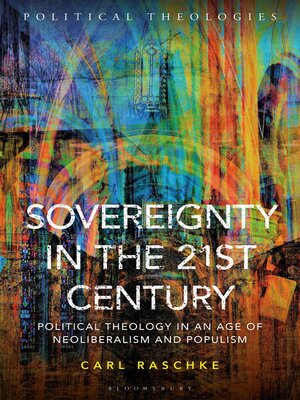Sovereignty in the 21st Century
ebook ∣ Political Theology in an Age of Neoliberalism and Populism · Political Theologies
By Carl Raschke

Sign up to save your library
With an OverDrive account, you can save your favorite libraries for at-a-glance information about availability. Find out more about OverDrive accounts.
Find this title in Libby, the library reading app by OverDrive.



Search for a digital library with this title
Title found at these libraries:
| Library Name | Distance |
|---|---|
| Loading... |
When God is "dead" and governments themselves are increasingly subject to the power of global corporations, massive movements of peoples, transnational political upheavals, and ecological disasters, what does sovereignty mean for the 21st century? Sovereignty in the 21st Century is Carl Raschke's deep theoretical dive into the meaning of sovereignty in both its historical and contemporary settings, showing how the idea can be expanded beyond politics and offer emancipatory strategies for previously marginalized peoples.
Picking up Carl Schmitt's idea of sovereignty's 'divine' associations making it an implicitly theological concern, Raschke explains how political and religious thought have always been intertwined. These intertwined strands find their relevance today in debates around class, race and domination, making the question of sovereignty not just a political but a social and economic one. Bringing to light the ways in which great transnational conflicts today are not between authoritarianism and democracy but between neoliberalism and populism, this book brings us closer to a profound understanding of what we truly mean by democracy, or 'popular' sovereignty in the 21st-century.
Picking up Carl Schmitt's idea of sovereignty's 'divine' associations making it an implicitly theological concern, Raschke explains how political and religious thought have always been intertwined. These intertwined strands find their relevance today in debates around class, race and domination, making the question of sovereignty not just a political but a social and economic one. Bringing to light the ways in which great transnational conflicts today are not between authoritarianism and democracy but between neoliberalism and populism, this book brings us closer to a profound understanding of what we truly mean by democracy, or 'popular' sovereignty in the 21st-century.







